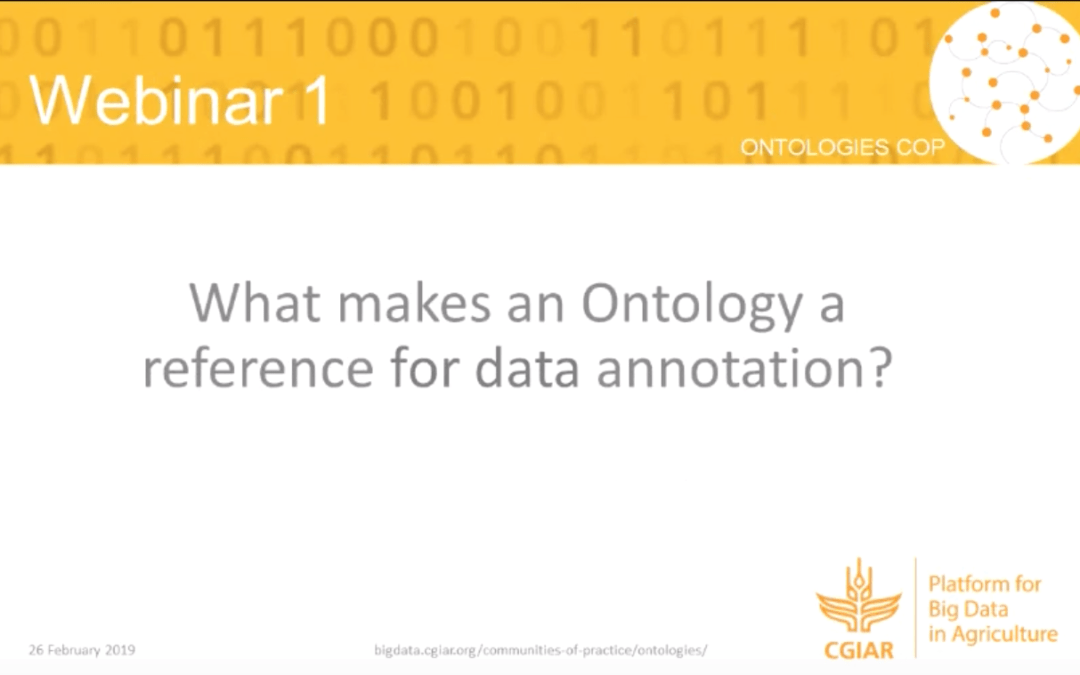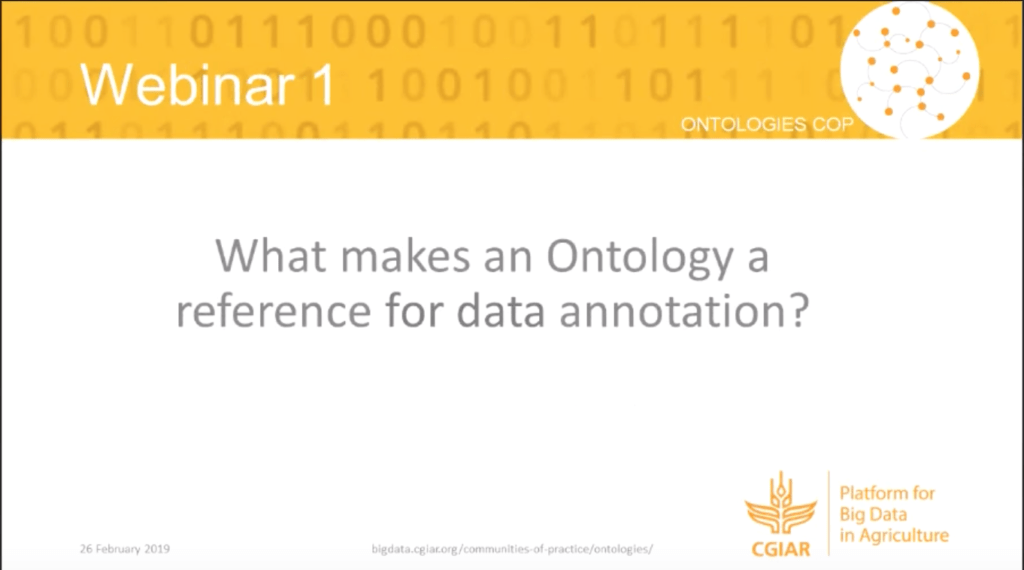Webinar summary – What makes an ontology a reference for data annotation?
The Ontologies Community of Practice (CoP) of the CGIAR Platform for Big Data in Agriculture launched a webinar series to debate, share and advance our thinking on selected topics in the domain of ontologies. Here’s what we learned from the first webinar.
***
The use of ontologies in agricultural data management is evolving at a fast pace and requires shared knowledge and consistency of use across sectors. To optimize integration and efficiency of data, for the first webinar of the series a panel of experts exchanged on the important dimensions to consider when identifying an ontology for data annotation.
These were the key important dimensions cited by the experts during the discussion:
- The long-term maintenance of the ontology,
- Whether the ontology is open,
- Logically well-formed (with the Open Biological and Biomedical Ontology foundry principles),
- Collaborative, and
- If it has a curative tool.
However, it was clear that in general there are many dimensions that are valuable when considering ontology as a reference for data annotation.
Panelists and participants represented a range of academic to private sector perspectives (see panelists noted below.) Following the panel presentations, participants enthusiastically engaged in a rich Q&A session, where panelists were able to address questions related to the challenges in their work and share anecdotes about what is advancing, and where more attention is needed.
This webinar is the first step toward a global discussion to select a list of reference ontologies to use for data annotation within the CGIAR.
We thank the panelists for their engaging and inspirational insights:
Pankaj Jaiswal
Associate Professor at Oregon State University
Pankaj is an Associate Professor in the Department of Botany and Plant Pathology at Oregon State University. He is a co-founder and lead investigator of the Planteome project on development of common reference ontology for plant biology (www.planteome.org). He co-leads the development of one of the world’s largest online portal on comparative plant genomics, the Gramene database with the principal responsibility of developing a Plant Gene Networks called Plant Reactome (http://plantreactome.gramene.org).
Pier Luigi Buttigieg
Data scientist at the Alfred Wegener Institute
Pier Luigi’s work focuses on the application of bioinformatics and multivariate statistics to the diverse data sets derived from microbial ecology investigations. Concurrently, he develops and co-leads the Environment Ontology (ENVO: http://www.environmentontology.org/) and the Sustainable Development Goals Interface Ontology (SDGIO) in support of semantically consistent data standardization across the sciences and global development agenda.
Chris Mungall
Computer Research Scientist at Lawrence Berkeley Laboratory
Chris is Computer Research Scientist in the Environmental Genomics and Systems Biology division at Lawrence Berkeley Laboratory. His work focuses on computational methods for representing and interpreting complex biological data, in particular through the development and application of knowledge representation structures such as ontologies.
Alexandra Lafargue
Specialist Knowledge Manager at Syngenta
Alexandra has more than 10 years of experience at Syngenta in the area of information management and knowledge sharing and brings private sector expertise to the discussions.
The next webinar in this year’s Ontologies CoP Webinar Series will take place in April (exact date TBD) on the topic of ‘Machine Learning and Ontologies’. Please subscribe to the mailing list if you wish to receive more information and reminders on this topic.
March 11, 2019
Céline Aubert
Ontology CoP Project Manager
Bioversity International
Montpellier France
Latest news






